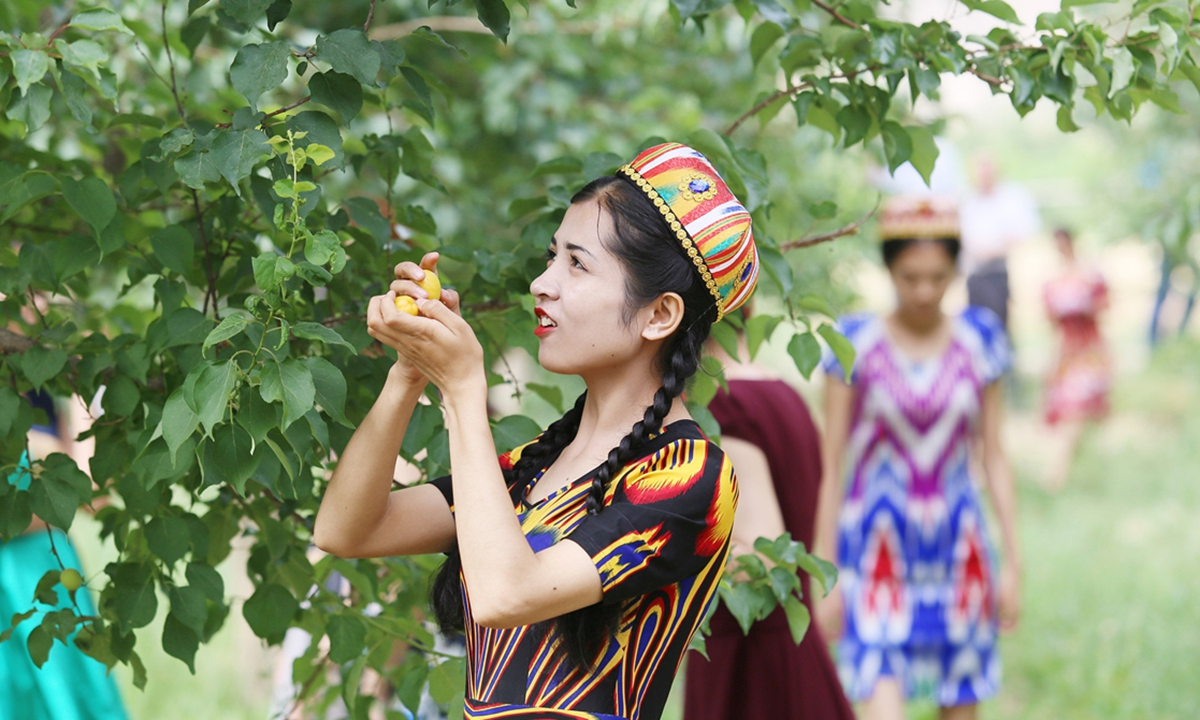
Photo: VCG
The BBC report on alleged abuses of women's rights in Xinjiang has no factual basis at all, said the Chinese foreign ministry spokesperson on Wednesday, urging related media to stop smearing China on Xinjiang topics.
Some of the interviewees turned out to be actors spreading false information, Wang Wenbin, spokesperson of the Chinese Ministry of Foreign Affairs, said at a daily press conference in reply to a Wednesday BBC report saying Uygur women have been “systematically raped, sexually abused, and tortured.”
“It is not BBC’s first time to publish some false reports on Xinjiang, and we have clarified and refuted many times,” Wang said.
He noted that China has published eight Xinjiang-related white papers, and the Xinjiang regional government has held more than 20 press conferences, showing with detailed figures and examples that people of all ethnic groups in Xinjiang live in peace and contentment, unity and harmony, and that all their legal rights are effectively guaranteed.
In recent years, more than 1,200 diplomats, journalists and representatives of religious groups from more than 100 countries have visited Xinjiang, and they witnessed with their own eyes the unity, harmony, joy and peace of the people of all ethnic groups in Xinjiang, Wang said.
In July, 2019, ambassadors from more than 50 countries to the UN at Geneva co-signed a letter to the President of the UN Human Rights Council and the High Commissioner for Human Rights to voice their support for China's position on issues related to its Xinjiang. The ambassadors “commended China for its effective counter-terrorism and de-radicalization measures and strong guarantee of human rights.
In October, 2019, at the Third Committee session of the 74th United Nations General Assembly, more than 60 countries commended in their statements the tremendous human rights progress achieved in Xinjiang.
A joint statement on behalf of 46 countries at the 44th session of UN Human Rights Council voiced support for China's stance, work and achievement in issues related to Xinjiang, which was delivered in July, 2020.
In October, 2020, 20 Arab states' diplomats in China and Arab League delegates visited Xinjiang. After the trip, they all spoke highly of the region's progress in counter-terrorism and de-radicalization, protection of religious freedom, promotion of economic growth and livelihood, Wang said.
“We hope relevant media will face up to facts and stop the baseless vilification of China on Xinjiang-related issues,” Wang noted.
